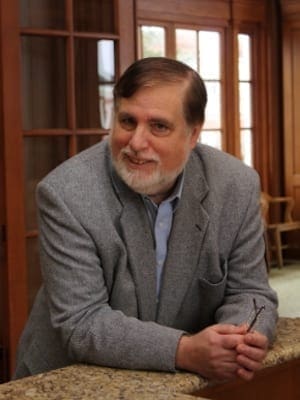The U.S. news media is fundamentally changing our understanding of an election. For the better part of 250 years, Americans have participated in or witnessed a political process that has involved two- or four-year cycles of selecting candidates that have culminated in stated election days where real people cast real votes at the polls.
Between election days, the public could expect that those elected would give themselves to governing and achieving some of the goals they announced in the election campaign. That’s the way it is supposed to work.
But the whole process has been manipulated by the media and social scientists. What we have now is a never-ending sense of “contest.” Once the election results are announced, if they are at all close, the loser contests the results. Sometimes this goes on for months as in Minnesota with Al Franken’s victory over Norm Coleman in the U.S. Senate.
Those who are charged with governance recognize quickly that they have a mandate that is quite short to create legislation and bring it into law. That window is established by the immediate start-up of the next election cycle. The media feeds on daily push-pull partisan expressions that create anxiety in those who were elected to govern as well as among the general population.
“Will my stance on a given piece of legislation, say universal health care, cost me my seat in the next election?” asks the legislator.
Instead of allowing a decent period for debate and public exposure to the issues, the issues are highly personified and the pollsters take over. Political cross-demonization takes place.
A huge industry has emerged around collecting public opinion that combines advertising agencies, mass media, communication specialists and even prestigious universities that have created “public policy institutes.”
We are treated to a daily diet of pundits, pollsters and prognosticators who become experts in predicting the success or failure of policies and those elected to govern. One of their favored measurements is to ask vague questions. Does the public still “like” the president? What percentage gives him a favorable job rating? It used to be the case that voters decided such matters at the next real election.
My second beef is with the media (especially the cable outlets) that have created an artificial sense of a “race” with artificial day-to-day impressions that turn out to be ephemeral from week to week, let alone on a month-to-month basis.
Ever feel like you are watching an imaginary horse race each night: The excitement can be as pitched as the real thing! We are treated to polls among “likely voters” a year before an election and given a rogue’s variety of politically partisan polls that give dramatically different versions of “public” opinion. (The real horses are the viewer ratings of MSNBC and Fox News.)
The nightly news shows have a constant appetite for specialist commentators who interpret such data and predict with all the authority of the TV studio setting (which typically includes a backdrop of the U.S. capitol) that one party or the other is “going down” or a candidate is far ahead in the polls and will win the “race.” Lately a “poll index” on MSNBC is summarizing all of the tracking to create a uniform sense of reality.
The most blatant example of this manipulation is the declaration in the media since June that Republicans will take control of the House and maybe the Senate, thus completely gridlocking governance with a Democrat in the White House. In a time of economic crisis second only to the Great Depression, is that what Americans need?
I take a special and perverse delight on election nights when all the conventional wisdom is overturned by the actual performance of the voters.
I also have a word of caution to the American public regarding media “expertise.” We are being bombarded with former politicians (like Joe Scarborough and Harold Ford Jr.), former members of the judiciary (like Andrew Napolitano) and former military brass (like Gen. Thomas McInerney and Col. Jack Jacobs) who are daily opining about decisions of governance. Such persons know the respective systems well enough to gain access to insider information, which they turn into commentary and public policy advocacy in the guise of journalism.
They have assumed a kind of authority that is artificially validated, when they are actually highly paid and highly visible lobbyists and “wannabe” entertainers. The public needs to more fully engage the policy debates for itself and reach considered positions that create an informed electorate worthy of a great democracy. We need journalists who discover and report news, avoiding the tendency to comment and pontificate.
By the way, the election is on Nov. 2 and if there is any “race,” it’s on election night as the tabulating equipment tallies the results. After you’ve voted, that’s when to get out the popcorn and pizza.
William H. Brackney is the Millard R. Cherry Distinguished Professor of Christian Theology and Ethics at Acadia University and Acadia Divinity College in Nova Scotia.

